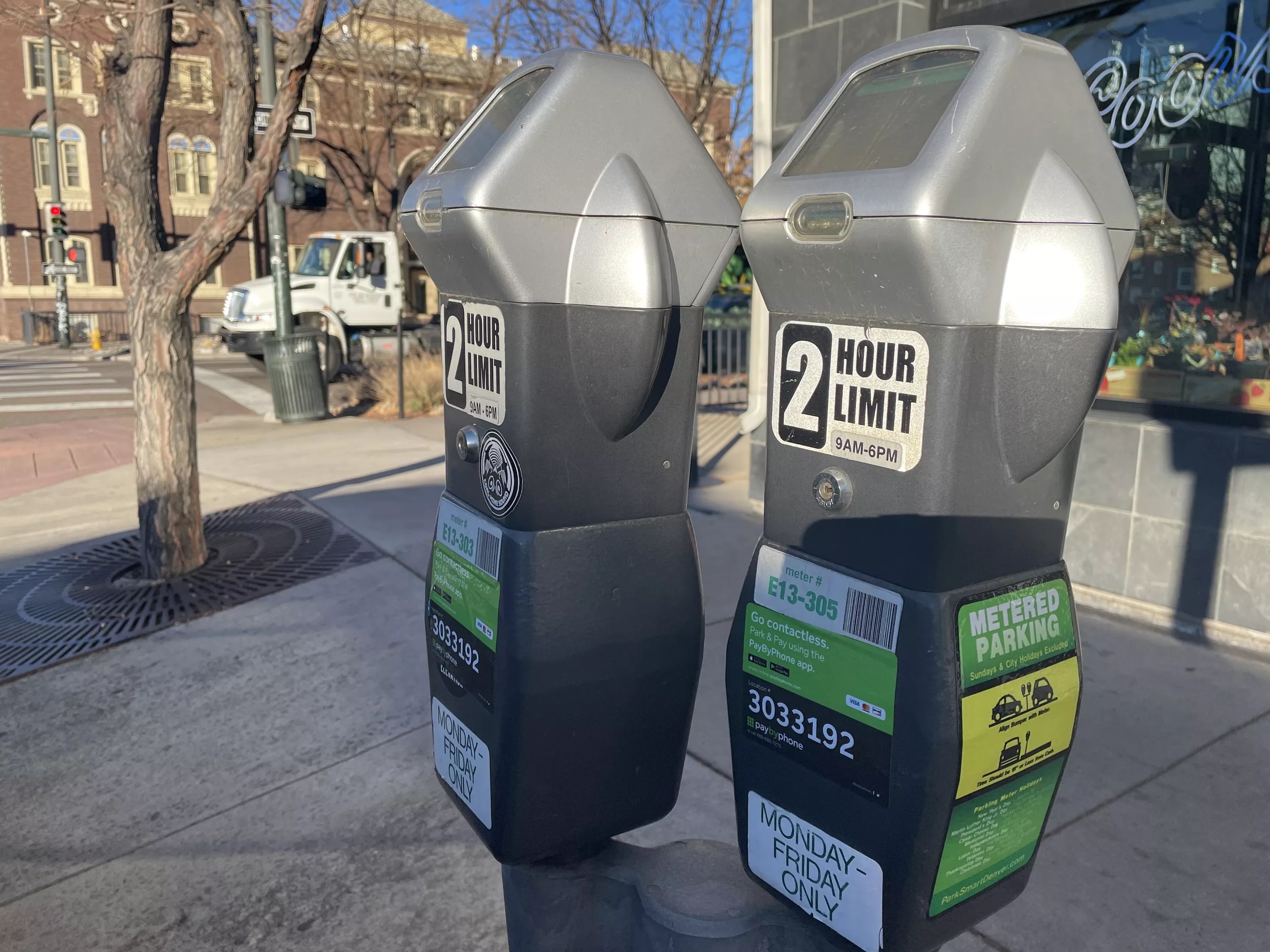
Catie Cheshire

Audio By Carbonatix
Starting today, February 1, parking fines will increase in Denver. Last month, the city doubled parking meter fees.
Most fines will increase by $10, except a few targeted at improving safety and mobility, according to the Department of Transportation and Infrastructure. The only fine that isn’t increasing is for a street-sweeping violation, which will stay at $50. That fine was raised from $25 back in 2011, according to Vanessa Lacayo, a DOTI marketing and communication specialist, and the last time the city reviewed other parking fines was 2007.
“In the last several years, we’ve seen significant growth that brought with it increased demand for parking,” Lacayo says, “and the new parking citation fee schedule is meant to incentivize drivers to park legally when they need a space and not block areas meant for walking, biking and people with disabilities.”
The violations seeing larger increases include those for parking in or blocking a bike line, parking on or blocking a sidewalk, and parking in or blocking a crosswalk – which will all increase by $40, from $25 to $65. Also seeing hefty increases are the fine for illegally parking in an accessible space, which will increase from $150 to $350, and the fine for illegal large vehicle parking in a neighborhood, which will increase from $25 to $250.
According to DOTI, more semi-trucks and business trucks have been using residential streets for parking; the fines are designed to help reclaim curbside space in neighborhoods.
Overall, DOTI estimates that the fine changes will generate an additional $6.4 million for the city, which will be placed in a fund for mobility and safety improvements.
“It’s good that it doesn’t just go into the general fund,” says Rob Toftness, a member of the Denver Bicycle Lobby, a grassroots organization pushing alternative transportation. He hopes the funds will be used to change the design of Denver’s streets to make them safer, as well as to replace speed-limit signs now that the city has changed speed limits on residential streets from 25 miles per hour to 20 miles per hour.
Many intersections, sidewalks and bike lanes need improvements too, he says, and cost has limited progress on such projects. Along with protected bike lanes, which place physical barriers between cars and those using the bike lane, Toftness says that narrowing streets helps lower the speed of vehicles and creates more cognizant drivers, which leads to fewer crashes.
“Maybe you add a bus lane, or you add a protected bike lane that kind of narrows the street and creates a little bit of visual friction for the driver and signals to them that, ‘Hey, this is a slower street and you have to pay more attention,'” Toftness notes.
He suggests that such modifications could help the city with its Vision Zero campaign, whose goal is zero traffic-related deaths or injuries by 2030. But the program has gotten off to a slow start since it was introduced in 2016. There were 84 traffic-related deaths in 2021, and there have already been three in 2022.
Additional revenue from parking meters will also go to safety and mobility improvements, with 40 percent earmarked for transit projects, 20 percent for sidewalks, 20 percent for new bicycle infrastructure and 20 percent to Vision Zero.
“I’m just really happy to see the city putting some focus on this,” Toftness says. “If we make it so that people aren’t just using parking and bike lanes as car storage, it makes it easier for other people to get around on bikes, on foot – even folks using mobility devices will use the bike lane. I know a lot of people will be angry and think it’s a cash grab. I see it as a way to get some better designs out there in the future.”